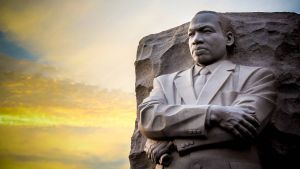Financial literacy is strongly connected to financial success. Saving for retirement, multiple streams of income and smart management of debt are all factors in a stable financial life. But a study published recently by the TIAA Institute and the Global Financial Literacy Excellence Center (GFLEC) at the George Washington University School of Business (GWSB) found that African-American people struggle with low levels of financial literacy.
According to the report, called “Financial Literacy and Wellness among African-Americans: New Insights from the Personal Finance (P-Fin) Index”:
- African-Americans’ financial literacy is lower than of white people in all but one area
- African-Americans and whites scored closely in the area of understanding financial risks
- Of the Index’s questions, African-Americans answered 38% of the Personal Finance (P-Fin) Index questions correctly
- White answered 55% of the Index questions correctly
- African-Americans answered only 32% of questions correctly about insuring
- African-Americans financial literacy was most fluent in the area of borrowing
“This important research and data set underscore the centrality of financial decision making in modern America,” said Cy Richardson, Senior Vice President for Programs, National Urban League. “The convergence of financial, credit and debt management provides headwinds for us all – yet structurally speaking the African American community has little margin for error compared to other groups and must continue to demonstrate progress on the critical measures and knowledge that is necessary to make financially responsible decisions – decisions, that are integral to our everyday lives and existence.”
Related Article: Intersectionality and Navigating Your Career
However, the disadvantages against Black Americans even today are a major component to a lack of financial literacy and upward mobility, according to researchers. A study published in 2018 that compared Census Bureau race data with IRS tax returns found that Black Americans have a significantly lower upward economic mobility in comparison to white Americans, regardless of family status, such as marriage or a single-parent household.
The paper suggests that African-Americans, facing higher rates of incarceration and less ability to access higher education in comparison to white people, could be tied to the lower rates of economic upward mobility.
The authors of the study contend that the major gap seen even between Black men and Black women, with Black women seeing much more successful rates of financial mobility, could also be tied to racism.
“Black-white gaps in high-school dropout rates, college attendance rates, occupation, and incarceration are all substantially larger for men than for women,” the authors write. “Black women have higher college attendance rates than white men, conditional on parental income.”
The TIAA Institute helps both individuals and businesses increase financial security.
“African-Americans make up 13 percent of the U.S. population and constitute a critical segment of our economy. Yet financial literacy gaps exist across this demographic group regardless of gender, age, income level, or degree of education,” said Stephanie Bell-Rose, Head of the TIAA Institute, in a statement. “It is imperative that we continue to shed light on this challenge in order to better map a course for financial success.”


















